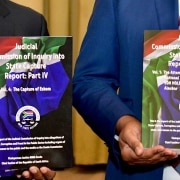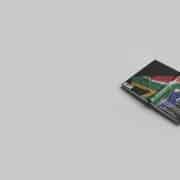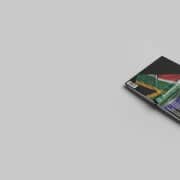|
Getting your Trinity Audio player ready...
|
This piece is extracted from Corruption Watch’s 2021 annual report. For more information, click here.
By Karam Singh
First published on News24
Since 2020, South Africans have had to deal with a multitude of new challenges and adapt to rapidly changing circumstances, as if the daily struggle for the majority of our people was not enough. Some of these challenges have taken the form of outright attacks on our democracy and our Constitution, which underpins that democracy.
Covid-19, record unemployment levels, violence against state and citizenry, attacks on the judiciary, and more have shaken the nation and exposed the extent of inequality, corruption and negligence.
South Africa’s constitutional democracy, then and now
It seems much longer than 28 years ago that we welcomed our new constitutional democracy. The excitement and enthusiasm were contagious, and it seemed entirely possible to build viable, capable, delivery-centric, Batho Pele-inspired institutions. We had high hopes for the equal delivery of justice, for inequality to be stamped out, for the realisation of all the potential South Africa holds.
Where are we now?
Not where we wanted to be. At times it feels like the country is at perpetual crossroads – between great equality and social justice on the high road and a further unravelling of the rule of law on the low road.
We are in some quarters feeling defeated and demoralised, but we cannot afford to let those feelings overwhelm us. If we want to see our systems and democratic institutions properly reinforced against abuse and corruption, we have to recommit, on an individual as well as an organisational level, to the recovery and rebuilding efforts just as we would respond to a natural disaster. Perhaps this is an apt metaphor because former president Jacob Zuma was described more than once as a tsunami in both the media and academia!
Protecting our democracy and Constitution is paramount for officials and citizens alike. Attacking our supreme law and declaring that it has not worked up to now is not a reflection on that law – it is a reflection on those tasked with enforcing the law. The ones who rage the loudest against it are those who have failed to give us transformation, who hide behind their failures and deploy a rhetoric that seeks to divide and confuse us.
We cannot allow this. We must put in the hard work. Just as we would have to clean up the physical devastation of our country, there is no short route to cleaning up corruption. It will take time but if we recommit to constitutional values and institution building, it is possible. Right now, we need messages that draw us together in the shared need to rebuild our democracy – not drive us apart.
Zondo report is key to meaningful action against corruption and the corrupt
One recent – and highly significant – development is the partial release of the final report of the Zondo commission of inquiry into state capture. It is significant because it holds many of the keys to meaningful action against corruption and the corrupt. Corruption Watch has followed the hearings from the first day back in August 2018, and we thought we had a reasonably solid grip on the facts.
However, from reading the commission’s staggering report, it is clear that much more has been revealed than came out in daily testimony, and more heinous deeds have been perpetrated than were shown on television. The question is, what can we as South Africans do about it? How do we future proof our democracy against this type of corruption?
Do the findings and recommendations of the commission finally move the needle when it comes to the pursuit of accountability from those responsible for the state capture assault on our constitutional democracy?
The Zondo report has tossed the ANC onto the horns of a dilemma, with the party front and centre as an agent of the worst forms of crony capitalism. The ANC has deliberately shown a lackadaisical approach to corruption and leniently allowed questionable people to occupy high-ranking positions. The corrupt have come to take this level of impunity as a given, which is exactly why the party cannot afford to continue on this trajectory. We have already seen, in the results of last year’s local government elections, a clear indication that people are no longer prepared to support the tolerance of corruption in government. It is certainly the moment to stand firmly against cadre deployment when it comes to filling positions in the echelons and the civil service and SOEs.
The first move should be to, once and for all, weed out all implicated officials in both the private and the public sectors and ensure they no longer have a job to manipulate for their own benefit. While some corrective measures will take time, this one can be implemented speedily.
There should be no mercy. ‘Innocent until proven guilty’ is an insufficient defence when people’s lives and livelihoods are at stake – and that is the situation for the millions who still languish in poverty, as well as the whistle-blowers who risk a great deal to expose the criminals who make off with funds meant to uplift those millions.
Tricky manoeuvring
Party factionalism, which also has been allowed to flourish unimpeded, will prove an obstacle in this regard. And with the ANC’s national elective conference taking place this year, the scene is set for tricky manoeuvring. We have already seen signs of an expanded political silly season from senior leaders seeking to posture themselves in opposition to the current governing leadership.
The second move should be to meticulously implement all the Zondo commission recommendations, no matter whose feathers are ruffled. Corruption has lingered and grown because dealing with it has been seen to be uncomfortable and would anger certain people. But comfort zones are not appropriate at this time; people must accept the consequences of their actions.
The Zondo report ensures that corruption remains firmly embedded in the public discourse. We as civil society must now push for quick action and real penalties. We must not let up, otherwise the report will become another white elephant.
Furthermore, South Africans must make it clear to President Cyril Ramaphosa that platitudes and social compacts will not drive out corruption. Placating certain party members will not improve the ethical culture in government, nor will endlessly repeated promises of renewal and self-correction get us anywhere but deeper in the swamp.







